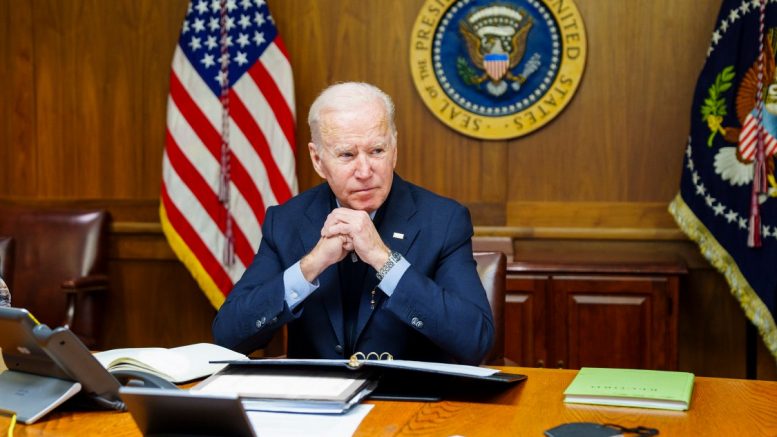Mining companies and analysts have described U.S. President Joe Biden’s decision to authorize the Defense Production Act to increase battery metals production and reduce the country’s reliance on China and Russia as an “urgent” move that provides “further proof” of the minerals’ growing importance in the geopolitical arena.
The act gives the president authority to prioritize the production of specific materials over others. It was invoked at least twice last year to increase production supplies linked to the coronavirus pandemic and raise firehose supplies to tackle the “unusually high occurrence” of wildfires in the United States.
“We are now seeing an urgent ‘whole of government’ approach to addressing both the current U.S. dependence on Russia and China for battery materials and the energy transition imperative,” said Henri van Rooyen, CEO of Talon Metals (TSX: TLO; US-OTC: TLOFF), which currently owns 51% of the Tamarack nickel project in Minnesota, in a press release.
The company will supply Tesla with 165 million lb. of nickel over six years once it commences commercial production. The project has an indicated resource of 3.9 million tonnes grading 1.91% nickel and 1.02% copper, and 7.16 million tonnes grading 1.11% nickel and 0.68% copper inferred.
“President Biden’s action today makes clear that there is a bipartisan consensus that the battery material supply chain, from mine to recycling, is a national priority,” he added.
The demand for battery metals has increased globally as the world looks to meet its decarbonization goals by 2050. According to the World Bank, the supply of critical minerals needed for energy transition is “more concentrated” compared with fossil fuels. The bank estimates half of the world’s battery metals to be concentrated in about three countries.
China is the world’s biggest producer of rare earths and controls about 85% to 90% of its rare earths processing, while Russia produces 6% of its aluminium and 7% of its mined nickel. The U.S. currently has less than 1% of the world’s mined lithium supplies and is highly dependent on imports for the metal.
Biden’s directive will specifically be authorized to support the production and processing of minerals used for large capacity batteries such as lithium, nickel, cobalt, graphite, and manganese, a White House statement said on March 31.
Graphite One (TSXV: GPH; US-OTC GPHOF), which is currently developing an integrated project that aims to mine and process graphite at its Graphite Creek property in Alaska, said the move “validated” the company’s strategy of creating an integrated supply chain for the material in the U.S.
“Graphite joins a select group of ‘super-critical minerals’ that are essential to commercial technology and national security applications,” the company’s CEO Anthony Huston said in a press release.
According to analysts, Biden’s move provides “further evidence” of governments looking to exert control on battery raw material value chains. China dominates this market in many of the critical stages.
“While funding may be easier, and this may accelerate the installation of refining and processing assets for critical materials, we still expect that permitting new mines will prove challenging, which may be the weak point in the wider strategy,” BMO analyst Colin Hamilton wrote in a research note to clients on March 31.
Economist Patricia Mohr told The Northern Miner that while the move was necessary, she forecasts the immediate impact to be limited. She expects a majority of the funding from Biden’s move to support feasibility studies and productivity modernization rather than actual mine development.
“The recent war in Ukraine has increased awareness of the vulnerability of the United States to importing such a large amount of the ‘critical minerals’ needed for electrification and decarbonization,” added the former vice-president of Scotiabank and now independent analyst and founder of the publication Critical Metals for a Sustainable World.



Be the first to comment on "Miners welcome Biden’s Defense Production Act use as ‘urgently’ needed "